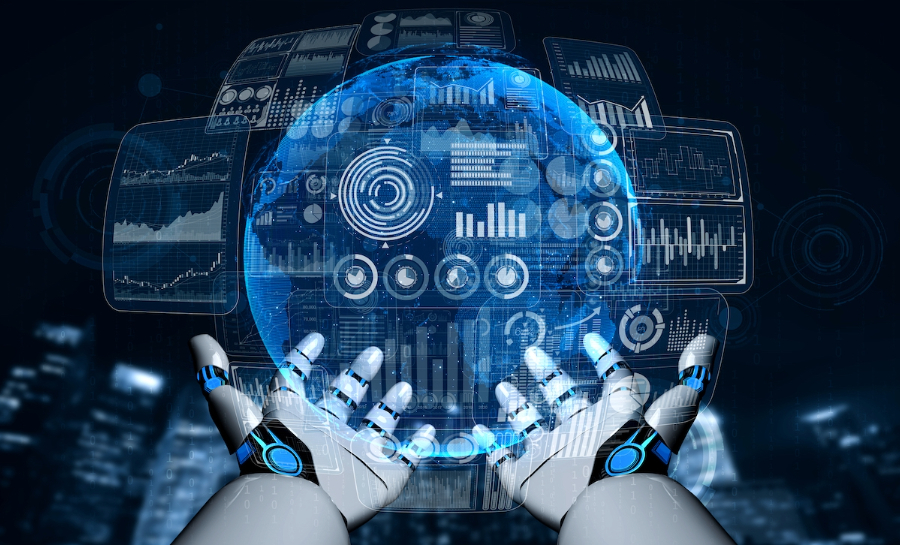Healthcare Benefits of Machine Learning
The healthcare sector is always changing. It can be challenging for healthcare workers to stay up to date with the constant development of new technologies and therapies. One of the most often used buzzwords in healthcare these days is machine learning. So what is machine learning in the context of healthcare? Why is machine learning for patient data so crucial? What are a few advantages of machine learning in the medical field?
Machine learning: what is it?
A particular kind of artificial intelligence called machine learning enables computers to see patterns in data and learn from them without a lot of human input. Computers that employ machine learning are provided patterns and data rather than instructions, enabling them to draw their conclusions.
Machine learning algorithms are used for many different tasks, such as email filtering, object recognition in photos, and massively parallel data analysis. Machine learning systems are used by computers to automatically scan emails for spam, identify objects in images, and handle large amounts of data.
A rapidly expanding area of precision medicine research is machine learning in healthcare, with a wide range of possible uses. As patient data increases in
What Are the Advantages for Patient Data and Healthcare Providers?
As you can see, machine learning technologies have many potential applications in the healthcare industry. These applications range from increasing patient safety and lowering costs to enhancing patient data, medical research, diagnosis, and therapy. The following is a summary of some advantages that machine learning applications in healthcare can offer medical professionals
Enhanced Diagnosis
Medical practitioners can utilize machine learning to create more advanced diagnostic tools for analyzing medical images. For instance, a machine learning algorithm can be used to search for patterns that point to a certain disease in medical imaging (such as X-rays or MRI scans) by employing pattern recognition. With the use of this kind of machine learning algorithm, physicians may be able to identify patients more quickly and accurately, improving patient outcomes.
Creating novel therapies, finding new drugs, and doing clinical trials
Healthcare institutions and pharmaceutical firms can also employ a deep learning model to find pertinent information in data that may help with drug discovery, the creation of new medications by pharmaceutical corporations, and the development of novel illness therapies. For instance, clinical trial data and medical research could be analyzed using machine learning in the healthcare industry to uncover previously undiscovered medication side effects. In clinical trials, this kind of machine learning for healthcare could lead to improvements in drug development, patient care, and the efficacy and safety of medical procedures.
Cutting expenses
Healthcare organizations can utilize machine learning technology to increase healthcare efficiency, which may result in cost savings. In the healthcare industry, machine learning, for instance, might be utilized to create more effective algorithms for appointment scheduling and patient record management. The healthcare system may be able to save time and money by using this kind of machine learning to help with repetitive tasks.
Overview
A succinct explanation of machine learning and how different industries are using it.
An overview of how machine learning is revolutionizing the healthcare industry.
Section1: Prompt Disease Identification
Talk about how machine learning is used to analyze medical data to find diseases early.
Give instances of machine learning algorithms that can identify conditions like diabetes, cancer, and heart problems.
Section 2: Tailored Intervention Strategies
Examine how the development of individualized treatment plans based on unique patient data is made possible by machine learning.
Talk about the benefits of personalized medicine in terms of enhancing treatment results and minimizing side effects.
Section 3: Forecasting Medical Results with Predictive Analytics
Describe the predictive analytics process that uses machine learning to predict patient outcomes.
Talk about the possibility of reducing hospital readmissions and maximizing the use of resources in medical environments.
Section 4: Development and Discovery of Drugs
Emphasize how machine learning speeds up the process of finding and developing new drugs.
Give instances of how biological data is analyzed by algorithms to find possible drug candidates.
Section 5: Electronic Health Records (EHRs) Management and Analysis
Talk about the ways that machine learning enhances the administration and examination of electronic health records.
Examine the effects on accessibility, data accuracy, and overall patient care.
Section 6: Remote Patient Monitoring and Telemedicine
Examine the ways that telemedicine and remote patient monitoring are improved by machine learning.
Talk about applications that use machine learning algorithms, such as wearable technology and smart health technologies.
Section 7: Cybersecurity and Fraud Detection
Talk about the significance of machine learning for cybersecurity in healthcare.
Emphasize how it protects patient data and helps identify fraudulent activity.
Section 8: Ethical Issues and Difficulties
Address moral issues like bias and privacy that arise from the use of machine learning in healthcare.
Talk about current initiatives to lessen these difficulties.
Source
- https://www.foreseemed.com/blog/machine-learning-in-healthcare
- https://www.ibm.com/topics/machine-learning
- https://www.bitsathy.ac.in/boosting-remote-sensing-with-machine-learning/

